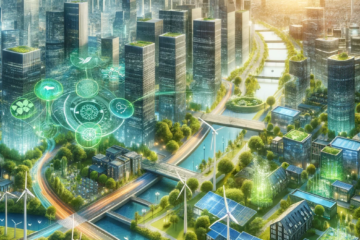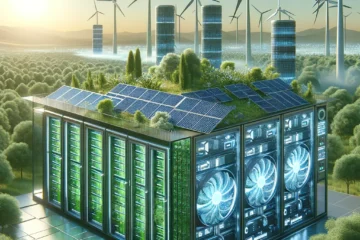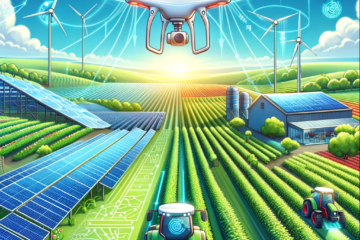In the realm of industrial evolution, sustainable manufacturing emerges as a beacon of progress, guiding industries towards a greener, more eco-conscious future. As the global community grapples with the pressing challenges of climate change and environmental degradation, the shift towards eco-friendly production practices is not just desirable but imperative. This article delves into the essence of sustainable manufacturing, exploring how renewable energy, green technology, sustainability, and technological advancements are pivotal in sculpting the future of production.
Renewable Energy: Powering Sustainable Production
The Role of Renewable Energy in Manufacturing Renewable energy stands at the forefront of the sustainable manufacturing revolution. By harnessing the power of wind, solar, and hydro resources, industries can significantly reduce their carbon footprint. The transition from fossil fuels to renewable sources is not just an environmental necessity but also an economic opportunity, offering industries a path to reduce energy costs and increase competitiveness.
Challenges and Solutions in Integrating Renewable Energy While the benefits are vast, integrating renewable energy into manufacturing processes poses its set of challenges. The variability and intermittency of renewable sources can impact the reliability of energy supply. However, advancements in energy storage technologies and smart grid solutions are paving the way for a more resilient energy infrastructure capable of supporting the demands of modern manufacturing.
Case Studies: Success Stories of Renewable-Powered Factories Numerous industries worldwide are setting exemplary standards by fully embracing renewable energy. These success stories not only highlight the feasibility of renewable-powered factories but also showcase the potential for substantial environmental and economic benefits.
Green Technology: Innovations in Sustainable Manufacturing
Emerging Green Technologies in Production Green technology encompasses a wide range of innovations designed to minimize environmental impacts. In the context of manufacturing, this includes advancements in materials science, such as biodegradable composites and recycling technologies that enable the circular economy.
The Impact of Green Tech on Waste Reduction and Efficiency By adopting green technologies, manufacturers can drastically reduce waste and improve resource efficiency. Techniques such as precision agriculture, 3D printing, and smart manufacturing processes are leading the way in creating more sustainable production landscapes.
Examples of Green Technology Adoption in Industry Illustrative examples of industries leveraging green technology to enhance sustainability further affirm the transformative potential of these innovations. These examples serve as a roadmap for others to follow in the pursuit of eco-friendly production.
Sustainability: The Core of Eco-Friendly Production
Sustainability Practices in Modern Manufacturing Sustainability practices extend beyond environmental considerations, encompassing social and economic dimensions as well. In manufacturing, this translates to practices that not only protect the planet but also ensure fair labor practices and contribute to the economic vitality of communities.
The Role of Circular Economy in Sustainable Manufacturing The circular economy model is central to sustainable manufacturing, focusing on the reuse, recycling, and remanufacturing of materials. This approach minimizes waste and promotes a more efficient use of resources, illustrating a holistic path towards sustainability.
Global Standards and Certifications for Sustainable Manufacturing Global standards and certifications play a crucial role in guiding and recognizing sustainable manufacturing efforts. These benchmarks provide a framework for industries to measure their sustainability performance and make informed improvements.
Technological Advancements: Enabling Smarter, Cleaner Production
Innovations Driving Sustainable Manufacturing Technological advancements are the linchpin in the evolution of sustainable manufacturing. From artificial intelligence and machine learning to robotics and the Internet of Things (IoT), these innovations are making smarter, cleaner production a reality.
The Intersection of AI and Eco-Friendly Manufacturing Artificial intelligence (AI) offers unprecedented opportunities to optimize manufacturing processes, reduce waste, and enhance energy efficiency. AI-powered systems can predict maintenance needs, optimize supply chains, and even design more sustainable products.
Case Studies: Technological Breakthroughs in Manufacturing Real-world examples of technological breakthroughs in manufacturing underscore the significant impact of these innovations. By leveraging cutting-edge technologies, industries can achieve not only greater sustainability but also improved productivity and competitiveness.
The Future of Sustainable Manufacturing
As we look towards the future, sustainable manufacturing stands as a critical component of a more resilient, eco-friendly global economy. The integration of renewable energy, green technology, sustainability practices, and technological advancements will continue to drive the industry forward. This ongoing evolution requires a collaborative effort among policymakers, industry leaders, and consumers to fully realize the vision of eco-friendly production.
In conclusion, the shift towards sustainable manufacturing is not just a trend but a necessary transition to safeguard our planet for future generations. By embracing renewable energy, green technology, sustainability, and technological advancements, industries can lead the charge towards a greener, more sustainable future. The journey is complex and fraught with challenges, but the rewards—a healthier planet, a more equitable society, and a thriving economy—are immeasurably valuable.




